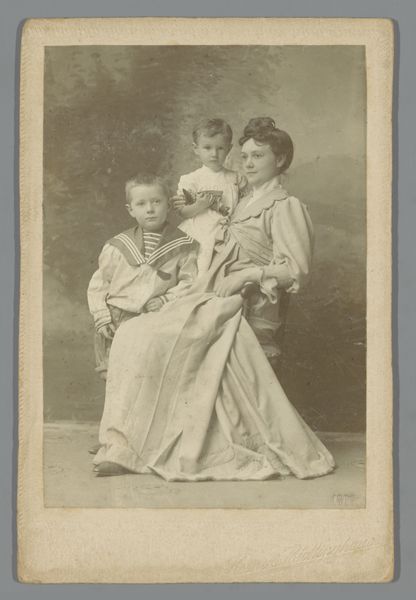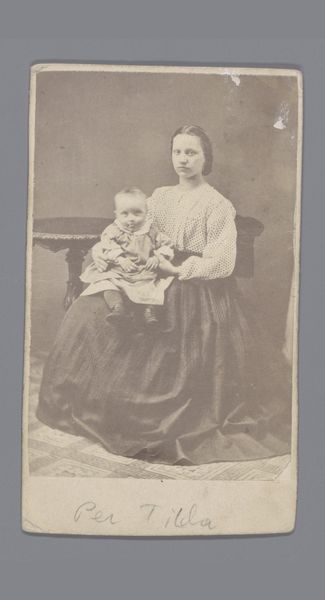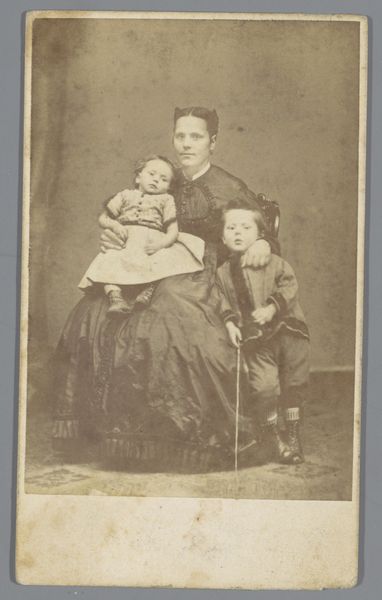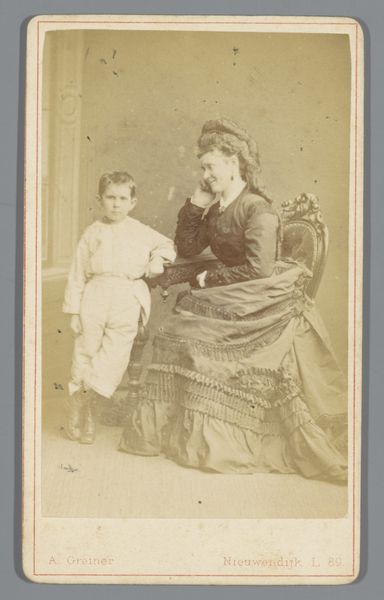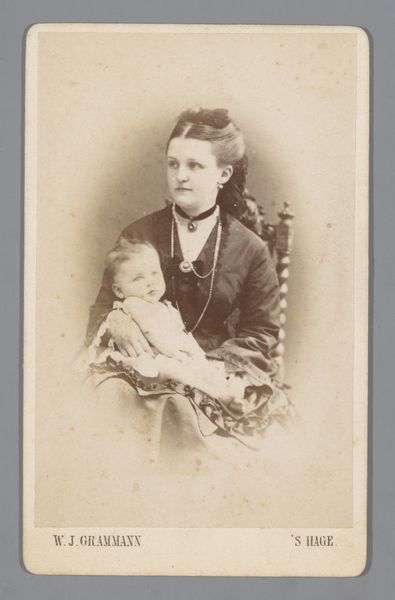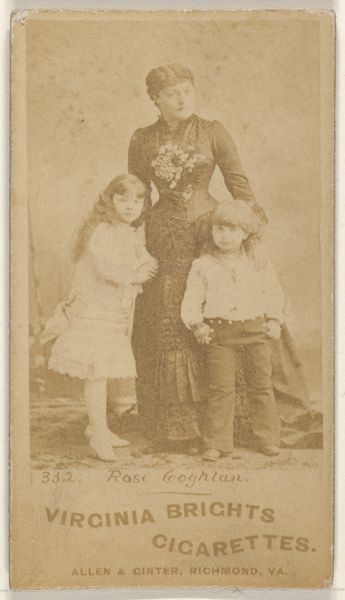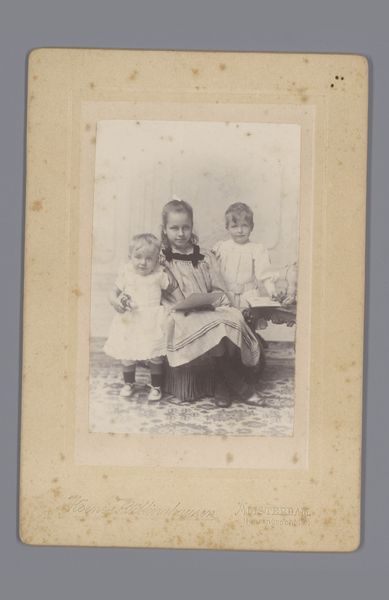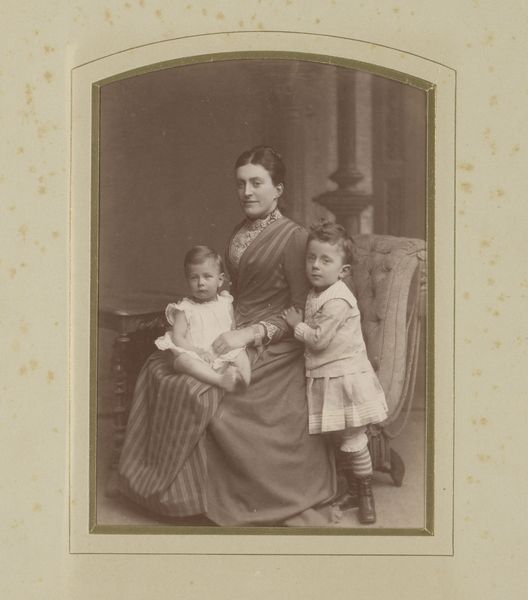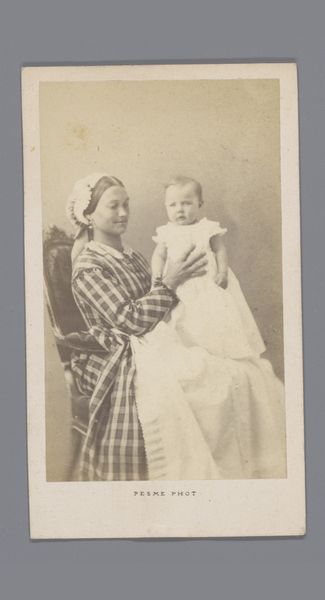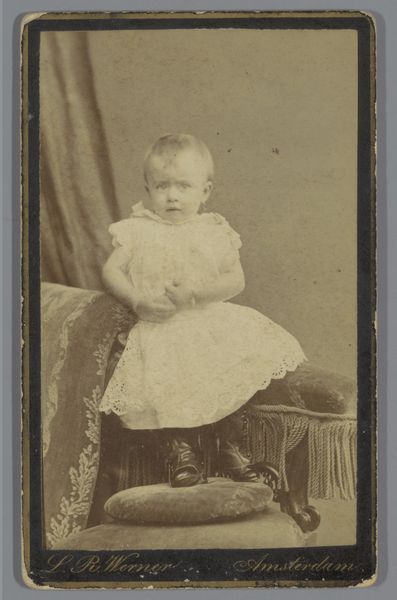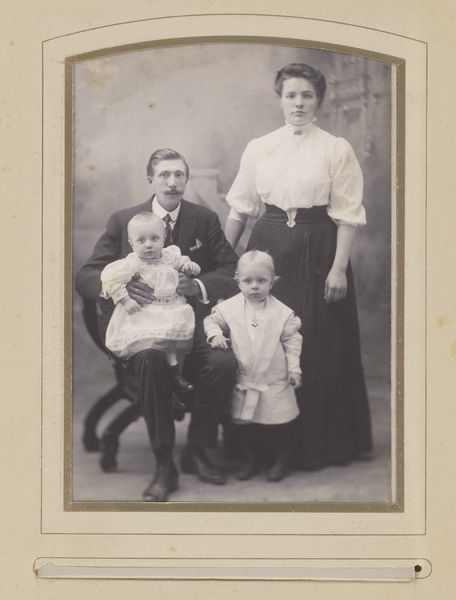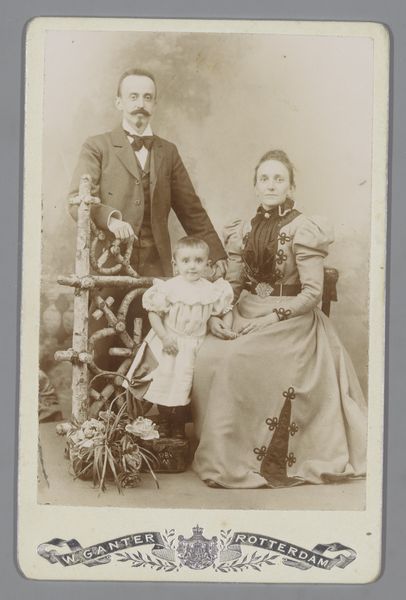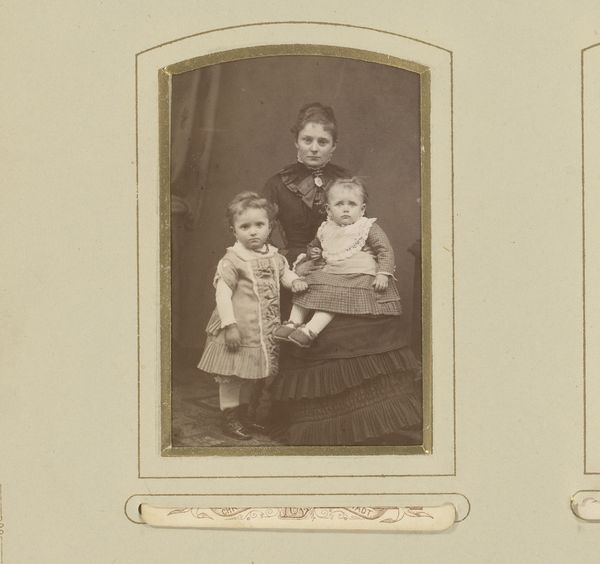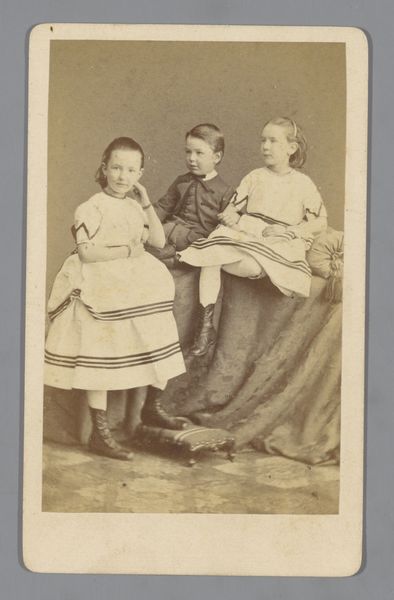
daguerreotype, photography
#
portrait
#
daguerreotype
#
photography
#
coloured pencil
#
group-portraits
Dimensions: height 101 mm, width 61 mm
Copyright: Rijks Museum: Open Domain
This photograph of a mother and two children was made by Johannes Ephraim in Arnhem. It is a ‘carte de visite’, a calling card, made possible by developments in photographic technology. Photography used chemistry and optics, combined with entrepreneurial business models. Photography studios had to deliver standardized products, portraits of individuals, families, or groups, that appealed to the rising middle classes. The success of photography was enabled through industrialization, with darkrooms as spaces of craft-based labour. But as photographic production became more industrialized, it also became more democratized, allowing an increasing number of people to immortalize their image in standardized formats like this one. Considering its cultural and social context helps us understand the meaning of this object, challenging the distinction between fine art and the democratized craft of photography.
Comments
No comments
Be the first to comment and join the conversation on the ultimate creative platform.
